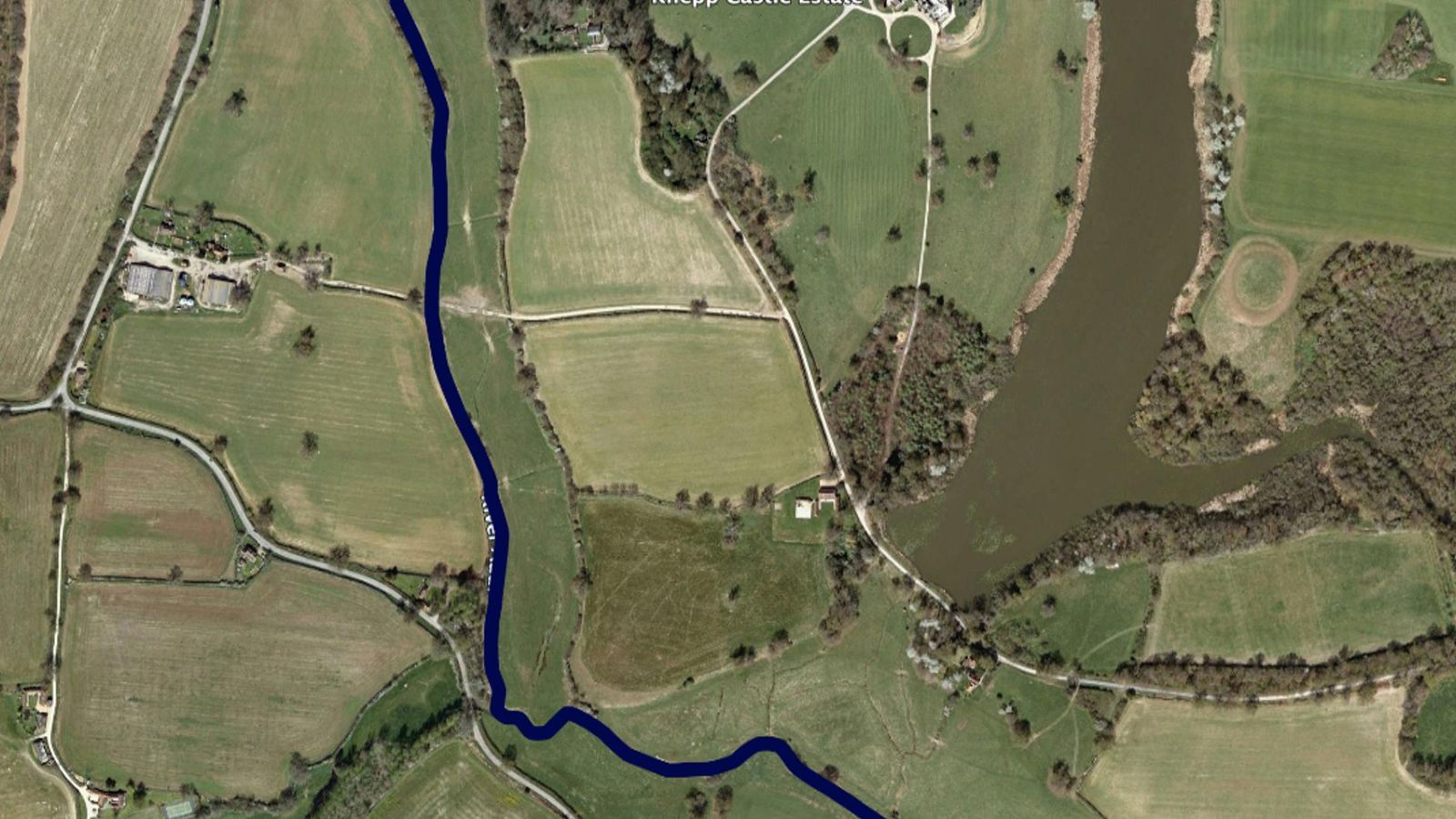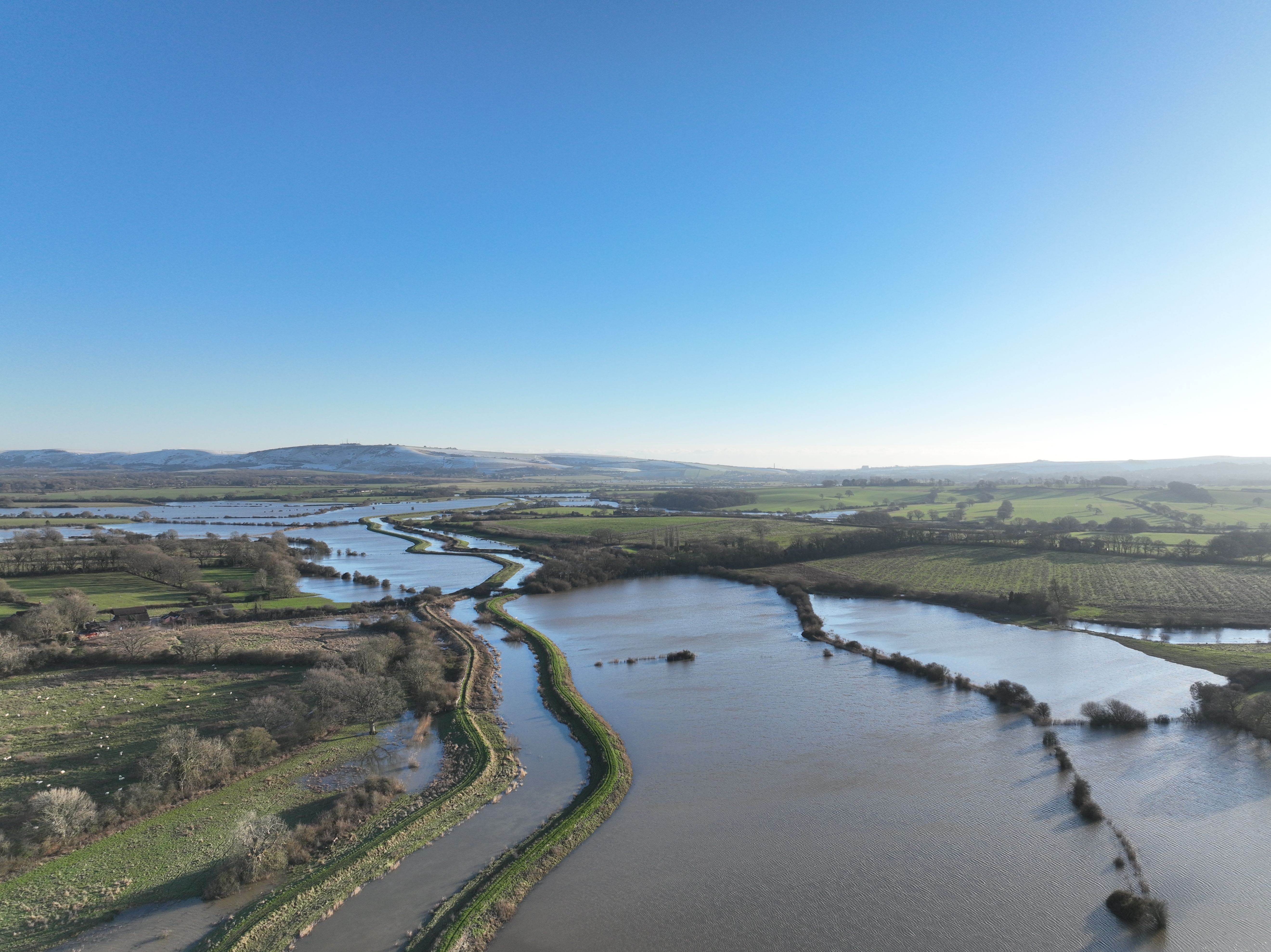Sussex rivers: the future of flood management
By Libby Drew - 12 January 2024
Recent flooding across the UK has caused concern. The Environment Agency have estimated that around 5.7 million homes and businesses in England are at risk of flooding and that number could double by 2055, partly because of climate change.
Riverside farmland bears a lot of this risk. With more extreme weather predicted each year, farmers and communities along the River Adur in West Sussex now experience both summer and winter floods. Embankments erected between the 1950-80s were designed to hold flooding at bay. But rising waters and degradation of the banks have led to breaches and overtopping.
At Knepp, the headwaters of the River Adur have undergone a transformation as part of their nature recovery work. Restoring the 'muddy meanders', planting shady river areas for sea trout, and the introducing a beaver enclosure on the estate has helped to re-established wetlands that are rich in biodiversity, able to hold and naturally manage floodwaters, and keep water on site throughout drought periods.


Their Lead Ecologist, Penny Green, captured an incredible series of drone videos of re-meandered river during the floods, prompting a visit from Sky News interested in the how 'bendy' rivers can help to manage flooding without costly interventions.
The Knepp river restoration project helped to revive 6.5km of the upper stretch of the river's floodplains. But this year, 27 farms along the river are collaborating on a completely new scale.
The Adur River Recovery project](https://www.adur-river-recovery.org/) is one of the national pilots to come under DEFRA's new ELMS scheme. Working with the Ouse and Adur Rivers Trust, Sussex WIldlife Trust and Adur and Worthing Council and Horsham, land managers are remodeling 750 hectares of the river. This will involve navigating the highly complex legal and funding issues, while working to protect productive land for food. However, the collaboration will go a long way in helping to manage flooding, improve water quality and reverse the loss of river wildlife, which has been in steady decline.
After the impact of the Knepp footage, River Recovery Manager, Mel Sanders, and W2W Project Officer, Alex Briggs, sent a drone up to see the extent of flooding along the rest of the Adur. It is easy to see the straightened course of the river, with floodwaters far breaching its embankments.

Along with flooding, water quality is high up in the public's priorities as we head into election year. In early January, an electrical issue at a wastewater treatment works on the Adur led to a significant waste leak into the sea, affecting the surrounding coastline and seascape. With efforts ongoing to restore the marine life off the Sussex Bay, waste leaks will continue to be a major concern. The public are awake to the risks and invisible harm being done to our rivers.
Further east, on the River Ouse, there is a sea change in citizen action around river health, with the Rights of the River campaign, and groups such as Wilder Ouse and Love My Ouse leading the way towards a deeper connection with our damaged waterways. You can listen to their podcast on their legal campaign here
Sussex's rivers weave through a landscape shaped by humans; we farm most of our floodplains and, in many places, have built right up to the river banks. As local farmer, David Exwood tells the Sky News team: "this is a managed landscape". In their increasingly vital role as land managers, farmers with land along the Adur can play a vital role in on-farm natural flood management, providing there is a clear mechanism for viable ongoing payments for storing and filtering waste and floodwater on the least productive land.
As the sea level and incidents of extreme rainfall rise, it is clear that the cost of maintaining current flood defences along the Adur estuary, many of which are in poor condition, will become more and more onerous every year. Fines to water companies for waste water breaches already reach into their tens if not hundreds of millions each year, and are set to become unlimited. If farmer-led natural flood management can offer a cost-effective mechanism for both flood management and water quality, while boosting biodiversity, why wouldn't we look to that as the perfect nature-based solution?

